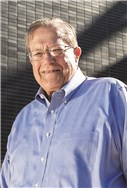 Richard Teerlink’s passion for motorcycles was sparked when he was 14 years old and some of his friends rode Harley 125s and Cushman motor scooters. But the young Teerlink’s yearning for a bike remained unfulfilled until adulthood, because Teerlink’s father wouldn’t let him ride.
Richard Teerlink’s passion for motorcycles was sparked when he was 14 years old and some of his friends rode Harley 125s and Cushman motor scooters. But the young Teerlink’s yearning for a bike remained unfulfilled until adulthood, because Teerlink’s father wouldn’t let him ride.
Years later, Teerlink turned to motorcycles full time, tapping his youthful memories and using them to help rebuild the Harley-Davidson Motor Co.
Teerlink was part of the 13-member executive team responsible for Harley-Davidson’s financial turnaround in the late 1980s, coming aboard just months after senior management – led by AMA Hall of Famer Vaughn Beals – bought the company from AMF Corp.
Teerlink joined Harley-Davidson in 1981 as chief financial officer.
“When I joined the firm as CFO, I can say that we were in very bad shape,” Teerlink recalled. “It was a management buyout. And, like all management buyouts, we had more debt than anything else. Some might say we had more debt than sense.”
Teerlink’s thick skin enabled him to shop for new banks and new financing for the company without becoming disheartened by hearing “No” time after time after time, said Tim Hoelter, former general counsel for Harley-Davidson. “He had a thankless task.”
“One of the things that attracted me to Harley was to get in the middle of the war, and work with everyone as we made the company survive and viable,” Teerlink said. “That’s pretty cool.”
Teerlink’s persistence eventually attracted the needed financing. The company began to turn around. Product quality improved. Sales picked up. Debts got paid.
That’s when Teerlink began to remake the company.
As president and CEO, Teerlink helped rebuild and rebrand the iconic company, establishing a new mission and new values, objectives and strategies.
“Anyone can make a motorcycle to go,” Teerlink said. “But how do we have that motorcycle become part of the human being?”
Current Harley president and CEO Matt Levatich said Teerlink’s approach was to make sure everyone in the company understood the business and their role.
“So, it was very much a bottom-up view about how a company should run,” Levatich said. “But it was a bottom-up view that required that leadership provide great context, perspective, information and direction, with which people could make the right decisions. And we’re working on that still today.”
Teerlink’s approach included working closely with employees at all levels of the organization, as well as with union leaders. In addition, he believed a participative approach with dealers, suppliers and riders would lead to the development of mutually beneficial relationships.
He also wrote a book titled More Than a Motorcycle: The Leadership Journey at Harley-Davidson that explains his collaborative, team-approach management style.
The Teerlink approach and philosophy proved successful. During his first year as CFO, the company posted an operating loss of $15.5 million on revenue of $210 million. When Teerlink retired as chairman and CEO in 1999, Harley posted operating profits of $416 million on revenue of $2.45 billion and held nearly 50 percent of the U.S. market for 650cc and larger motorcycles. He will be inducted into the Hall of Fame in the Ambassadors and Industry category.
“He’s the guy who single-handedly turned the company around,” said AMA Hall of Famer Bill Werner, a racing mechanic for Harley-Davidson who turned motorcycles that carried Gary Scott, Jay Springsteen and Scott Parker to 13 AMA Grand National championships.
“I’ve worked for a lot of CEOs,” Werner said. “This is one I would like to say I worked with.”
Even with all of the financial successes, Teerlink said his greatest accomplishment was establishing the Harley Owners Group in 1983.
“HOG provides riders with global opportunities to enjoy motorcycling,” Teerlink said. “In 1988, and every five years thereafter, thousands of riders celebrated the sport of motorcycling in Milwaukee. Local chapters were established all over the world in celebration of the sport.”
There currently are more than 1,400 official HOG chapters around the world, with each chapter sponsored by an authorized Harley-Davidson dealership.
Yet, Teerlink remains reluctant to accept credit for the company’s amazing turnaround or the popularity of the Harley brand today.
“Harley wouldn’t be here today if we didn’t have thousands of people doing their job,” he said. “We have this hero thing that goes on in businesses. And, believe me, it’s nice to get the accolades. But it’s important for us who get the accolades to understand why.”